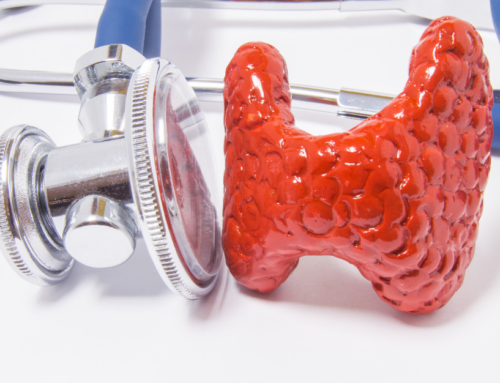How poor gut health impacts the thyroid
For 90 percent of Americans, hypothyroidism is caused by Hashimoto’s, an autoimmune thyroid disease. Since most of the immune system is situated in the gastrointestinal (GI) tract, poor gut health is a significant factor in triggering and exacerbating autoimmune diseases such as Hashimoto’s. An important step in taming Hashimoto’s is to repair gut health.
Conversely, appropriately managing Hashimoto’s and restoring thyroid function can help improve digestive function. Studies show both T4 and T3 protect the intestinal lining from ulcers. Studies also show hypothyroidism can cause intestinal permeability, or “leaky gut,” which allows undigested food into the bloodstream and instigates an immune attack. These are examples of the thyroid-gut vicious cycle and how you may need to go after both fronts at once.
Gut flora and T3
Our digestive tracts host an array of bacteria that contribute to our health in a number of ways. One way is in the production of active thyroid hormones. A whopping 20 percent of thyroid function depends on a sufficient supply of healthy gut bacteria to convert T4 to T3. When diets are poor and digestion falters, dysbiosis, an overabundance of bad bacteria, crowds out the beneficial bacteria, thus hampering the production of active thyroid hormone. Studies have also shown that bacterial gut infections reduce thyroid hormone levels, dull thyroid hormone receptor sites, increase the amount of inactive T3, decrease TSH, and promote autoimmune thyroid disorders. Additionally, some studies have found connections between Yersinia enterocolitica and Hashimoto’s disease—antibodies to this bacteria are 14 times higher in people with Hashimoto’s. Maintaining healthy gut flora and addressing bacterial overgrowth is an important component of good thyroid function.
Poor gallbladder function
Many people don’t realize how important the gallbladder is for proper digestion. It secretes bile to emulsify fats, which in turns aids in mineral absorption and prevents irritation of the GI tract. Hypothyroidism can cause the gallbladder to become sluggish and congested. A sluggish gallbladder increases the risk of gallstones; studies show more gallstones and bile duct stones among those with hypothyroidism.
A sluggish gallbladder also hinders the liver’s ability to detoxify. Poor liver detoxification not only hinders the conversion of T4 to T3, but also prevents the elimination of excess estrogen. As a consequence excess estrogen leads to an over abundance of the thyroid-binding proteins that transport thyroid hormones through the bloodstream. Too many thyroid-binding thyroid hormones prevent thyroid hormones from getting into the cells and hypothyroid symptoms ensue.
Address small intestinal bacterial overgrowth
Although dysbiosis in the large intestine has been the target of attention for some time, newer research is showing the importance of addressing dysbiosis in the small intestine. I find a monosaccharide diet to be quite effective in managing this issue. As I mentioned in last month’s article, this is a diet akin to the GAPS diet that eliminates all grains, starchy vegetables (such as potatoes), and sweeteners except for honey. It also includes daily consumption of homemade bone broths, which are soothing to the gastric lining. For people who find a gluten-free diet isn’t delivering the expected benefits, a monosaccharide diet may be the next step.
Don’t remove the engine light
The topic of restoring digestive health is vast and formidable, and this overview in no way constitutes a comprehensive approach. Instead it is an introduction to some fundamentals of thyroid health that go beyond thyroid meds and supplements. As I mention in the introduction to my book, poor thyroid function is like the engine light in your car turning on—it’s an indication to open the hood, investigate the engine, and repair what’s wrong. You don’t want to just take a drug or a supplement that will make the engine light go off.
Given the deleterious combination of poor diets, blood sugar imbalances, and the chronically stressful lives so prevalent today, the gut is usually the first to complain. Don’t ignore what it has to say with the use of over-the-counter medicines. When it goes down other systems in the body quickly follow suit, including the thyroid (the brain is also severely impacted, which will be the topic of my next book). When you set about recovering your thyroid health, it’s imperative you address digestive health as well.





